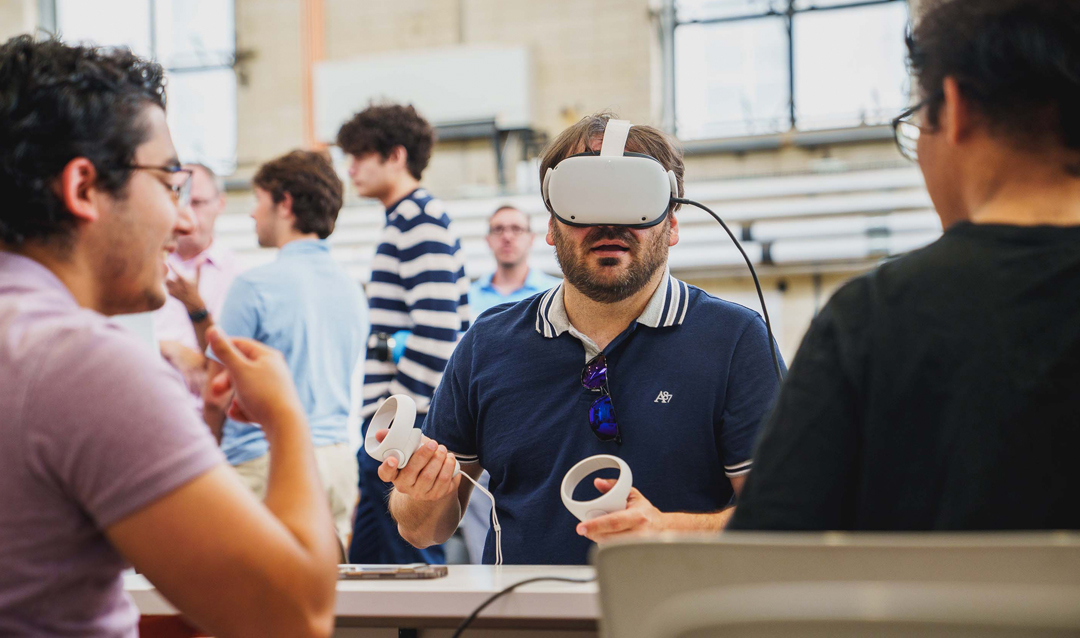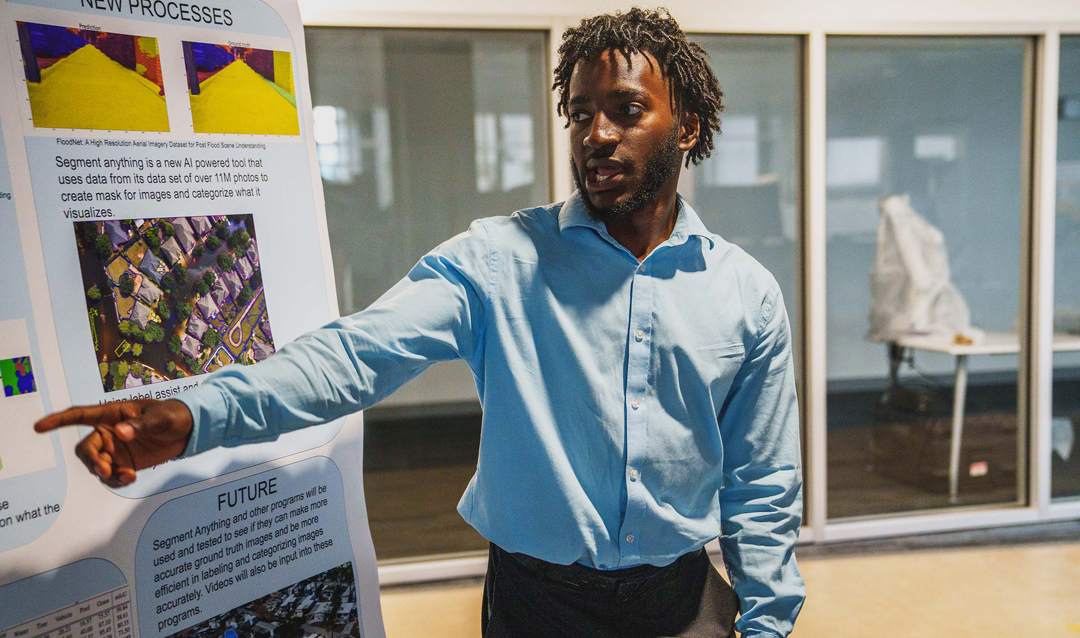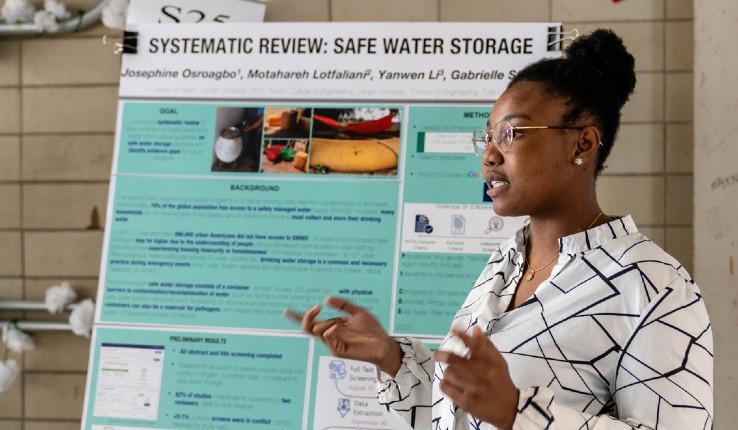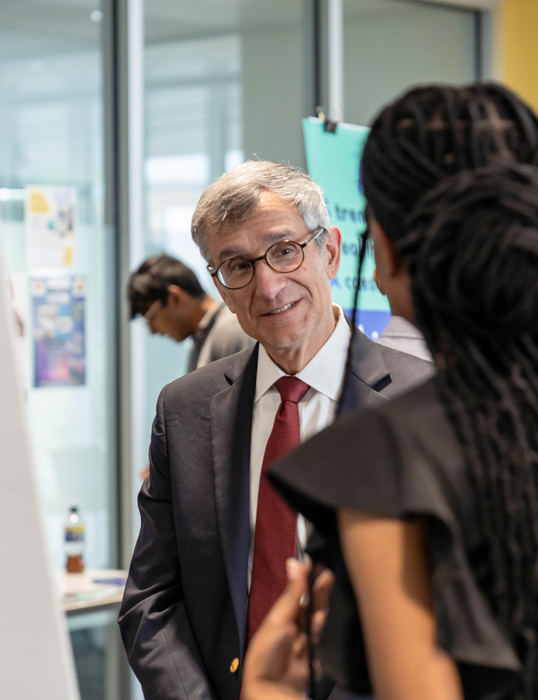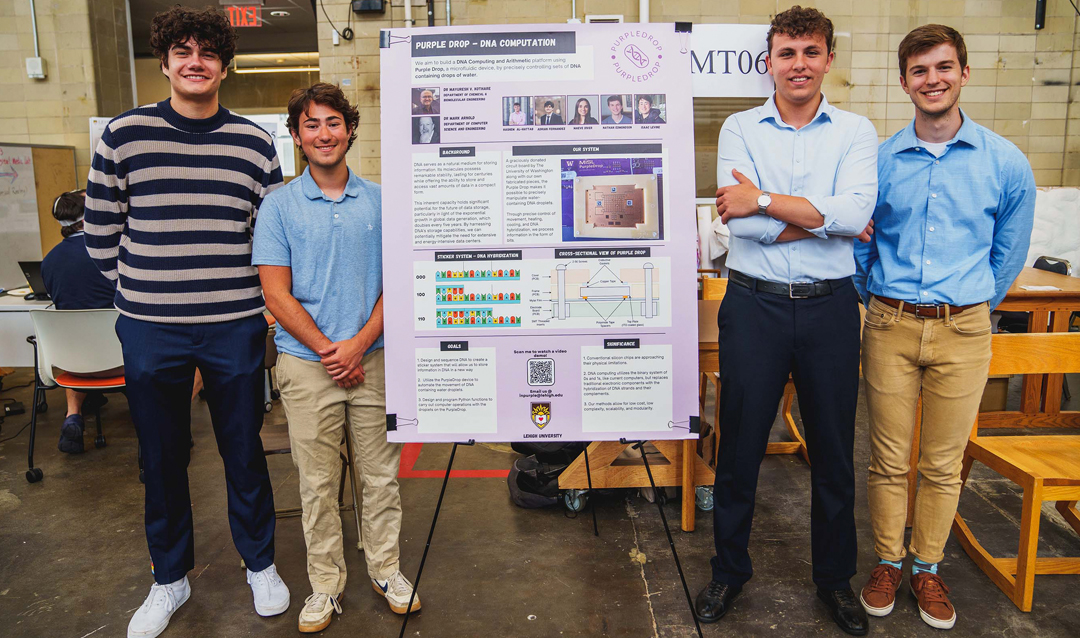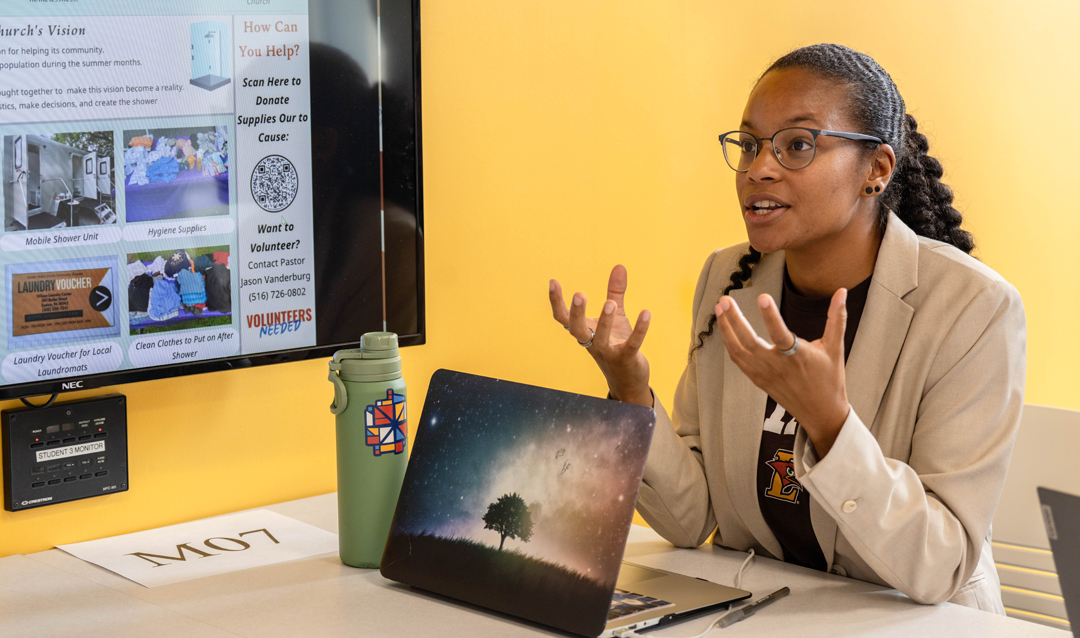More than 100 students from across disciplines gathered throughout Mountaintop Campus’ Building C on Aug. 3 for the third annual Summer Research Expo, presenting nearly 80 research projects to the campus community.
The afternoon event capped 10 weeks of the students’ paid summer undergraduate research through the STEM Summer Institute (STEM-SI) (29 projects presented), the Mountaintop Summer Experience (35 projects) and the Marcon Institute (11 projects).
The expo was an opportunity for the students to showcase the breadth and depth of some of the undergraduate research that took place over the summer on campus before work on many of the projects continued during the 2023-2024 academic year. The expo also gave the students the opportunity to share ideas, practice their presentations and obtain feedback.
Professor Vassie Ware, co-director of Lehigh’s STEM-SI program with Professor Neal Simon, said the STEM-SI had evolved from Lehigh’s previously funded Biosystems Dynamics Summer Institute (sponsored by the Howard Hughes Medical Institute) that highlights cross-disciplinary research from cohorts of students, the majority of whom were from groups traditionally underrepresented in STEM.


